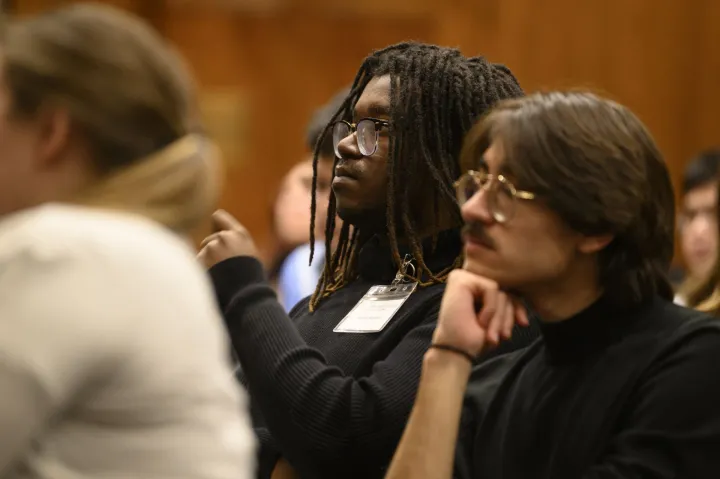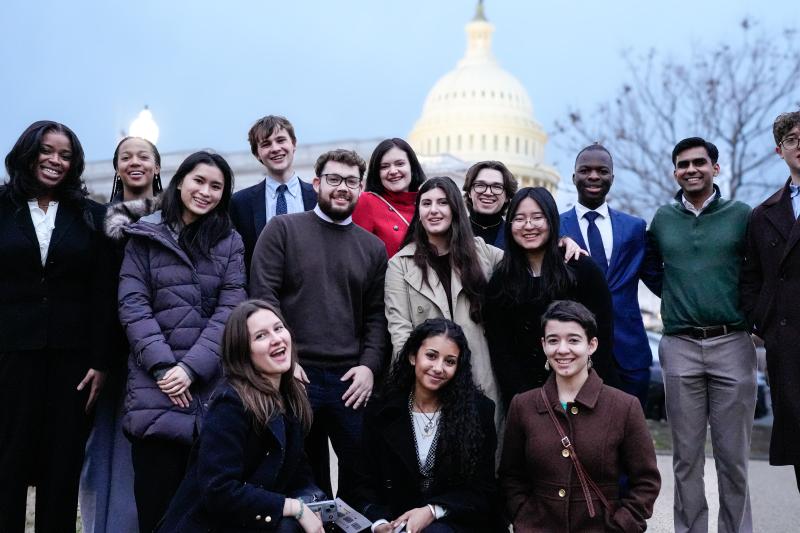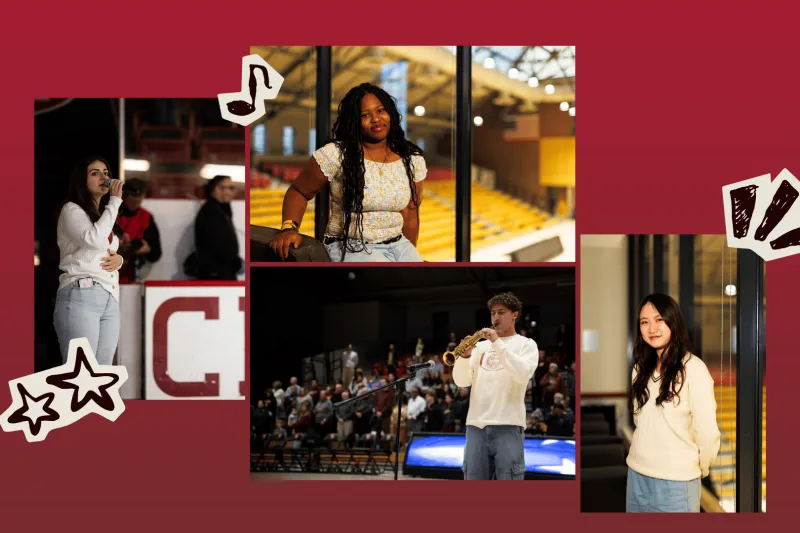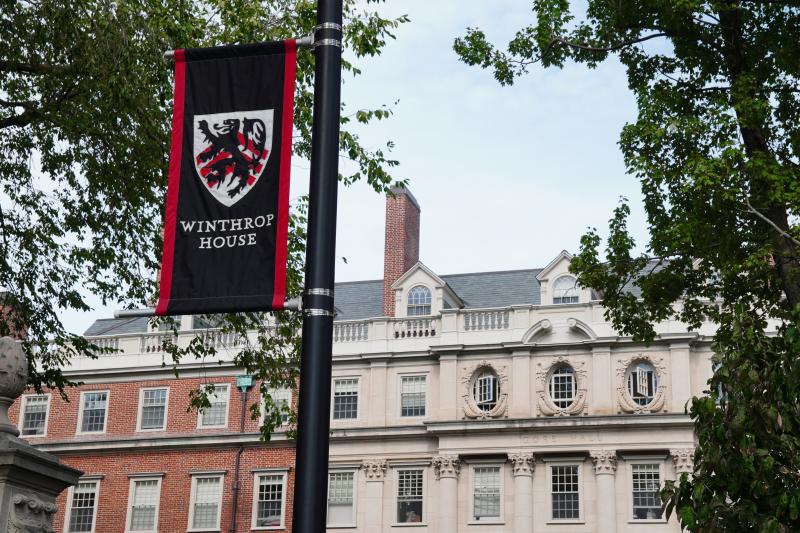Alert: Offices Closed Monday, February 16
The Admissions & Financial Aid Office will be closed for Presidents' Day on Monday, February 16. We will re-open with normal business hours on Tuesday, February 17.
Last Updated: February 13, 5:01pm

College’s Commitment to Intellectual Vitality: Creating, Facilitating, and Embracing Beginnings
As we welcome the class of 2028, what do we know about handling difficult conversations and connecting with people with whom we might disagree? The College’s Intellectual Vitality initiatives guide us.
In the spring of 2020, a group of students approached Danoff Dean of Harvard College Rakesh Khurana, expressing their desire to engage in more meaningful conversations across viewpoints and to develop principles around respectful dialogue and understanding in both the student and the greater Harvard community. What began as Zoom meetings during the pandemic expanded into a broader initiative as more students and faculty joined the discussions. Together, they collaborated in drafting the Intellectual Vitality Statement, which was presented in the spring of 2023.
The statement frames intellectual vitality as “a spirit of open and rigorous inquiry,” and highlights the commitment to “an attitude of humility, respect, and genuine curiosity toward each other, and to learning from one another.” Camila Nardozzi, the first Director of Intellectual Vitality Initiatives, emphasized the importance of collaboration between students and the administration, sharing, “It is a horizontal initiative. We are doing this together.”
Intellectual vitality embraces intellectual exploration, engagement with competing views, and reconsideration of foundational assumptions about the world, society, and one’s place in it. “Trying to understand what you hold important and what shaped those values will help you enter other conversations with respect," said Nardozzi.
Efforts continue to grow after a successful 2023-2024 pilot year. New Assistant Director of Pedagogy, Matthew Sohm, works with General Education and Expository Writing courses to incorporate principles of intellectual vitality into the classroom. The initiative works to prepare instructors and faculty on how to navigate through challenging conversations by providing them with tools to move the conversations forward instead of shying away from them.
In addition to working with educators in General Education and Expository Writing, the Intellectual Vitality team launched a dinner and dialogue series, called BOGU (Books Open, Gates Unbarred.) Since spring term 2024, the dinners and dialogue series demonstrate civilized debate and revolves around three main goals: promoting reasoned, respectful argument in academic settings, encouraging active listening and confident questioning, and emphasizing the historical and contextual significance of issues being discussed.
Intellectual Vitality partnered with the Harvard College Dean of Students Office, Edmond & Lily SAFRA Center for Ethics (ELSCE) in order to establish a new Fellowship in Values Engagement (FiVE) with the goal of “fostering intellectual vitality on campus by promoting ethical reflection and a culture of civil disagreement in undergraduate community life.” In its second year of programming, FiVE consists of twenty-six fellows, including eighteen tutors and eight proctors. All first-year yards and nine out of twelve upper-level student houses are represented. “The idea is to uphold the values of intellectual vitality and foster continued respectful dialogue with these principles in mind within the residential spaces,” Nardozzi shared.
As the new academic year began, both incoming and returning students had opportunities to engage with Intellectual Vitality, now in its second year. Through panels, presentations, and workshops, the initiative was featured in pre-orientation programs such as FIP, LIFE, and FYRE, as well as PAF training, and met student leaders in the student leader forum.
To welcome the Class of 2028, the College partnered with the Constructive Dialogue Institute, requiring incoming first-year students to complete the “Perspectives” program, a series of six 30-minute online modules. The online modules encouraged reflection on living with peers from diverse backgrounds and engaging in respectful dialogue, even when uncomfortable. “Perspectives” was reinforced by "Community Conversations" during orientation, designed to practice these skills. Nardozzi believes that the inclusion of these modules and conversations as part of orientation offers skill building and provides the foundation for what they hope the students will exercise in their four years at Harvard College.
Also during orientation, first-year students gathered to hear Anne T. and Robert M. Bass Professor of Government Michael J. Sandel deliver a thought-provoking talk on Intellectual Vitality. He framed the discussion around “the ethical questions technology puts before us,” posing the central question: “Will the new technology change what it means to be human?” Using examples like AI-generated videos of the Beatles, the digital de-aging of Harrison Ford in Indiana Jones, and a potential virtual comeback performance of a deceased actor, Sandel asked students to consider the ethics of these advancements. Throughout, he engaged the audience by asking whether they agreed or disagreed with different applications of AI, sparking a lively debate.
“These are not technical questions,” Sandel stressed, “These are questions about us, the human experience: growing older, contemplating death, questions of consent, and questions of authenticity.” He emphasized the importance of “listening to one another, especially the ones with whom we disagree,” and described such discussions as “exhilarating.” Sandel closed by encouraging students to make this the start of their intellectual journey, saying, “Reasoning, listening, arguing, being present to one another as you explore the big questions in the company of your classmates.”
Heading into this year, Nardozzi expressed hopes for broader student engagement and representation in the Intellectual Vitality, aiming to “talk about programming, how to best execute ideas, address issues that intellectual vitality can help with, and create workshop series for specific groups." She emphasized the importance of involving student leaders and ensuring the values are actively practiced in all areas of the student experience, not just in the classroom. To formally join the initiative, Intellectual Vitality is forming its first Student Advisory Committee, chaired by IV College Fellows, Ari Kohn ’26 and Victoria Wilson ’25. Applications are open and can be found here.
Additionally, funds for programming are available for student groups, entryways, teams, and clubs. Program proposals can be submitted online at the Intellectual Vitality website.




